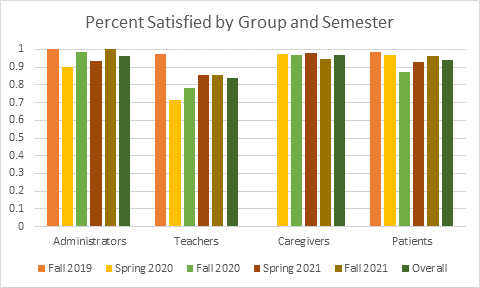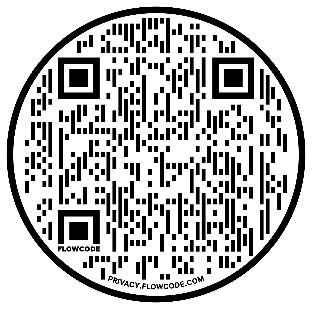Baltimore City Mental Health Programs
Program Description
The School Mental Health Program (SMHP) team is dedicated to removing barriers to learning and creating a safe and nurturing learning environment in which students and families are able to rapidly access a range of culturally sensitive and effective prevention and therapeutic services that promote wellness and academic success. The SMHP aims to accomplish this by positively impacting schools by way of focusing on building the schools’ capacity to support social emotional wellness through strengthening the school climate and teachers/administrators’ abilities to serve students with mental health concerns, as well as offering effective family and child-centered prevention, intervention, and treatment services to students and families.
The SMHP is committed to integrating evidence-based practices (EBP’s) into three tiers of prevention, with a strong focus on school-family-community partnerships. Additionally the SMHP has a growing telepsychiatry program that is supported by the University of Maryland School of Medicine, Department of Psychiatry, and the National Center for School Mental Health. This program helps to address the national shortage of child and adolescent psychiatrists while also increasing access to psychiatrists, reducing barriers to care and developing a workforce of 21st Century providers who are trained and engaged in the use of telemental health. Learn more.
 The University of Maryland Center for Infant Study/School Mental Health Program works to provide services for children ages 0-21. Our Center for Infant Study (CIS) specializes in children ages 0-5 while our School Mental Health Program focuses on children and adolescents ages 6-21. The CIS/SMH Program is an outpatient mental health center that been CARF accredited since 2016.
The University of Maryland Center for Infant Study/School Mental Health Program works to provide services for children ages 0-21. Our Center for Infant Study (CIS) specializes in children ages 0-5 while our School Mental Health Program focuses on children and adolescents ages 6-21. The CIS/SMH Program is an outpatient mental health center that been CARF accredited since 2016.
View our most recent CARF Accreditation Report, our Strategic Plan One-Pager, and the CIS/SMH Program Performance Analysis.
Program Staff - School Mental Health Program
- Nancy Lever, PhD, Executive Director
- Jennifer Cox, LCSW-C, Director
- Nikita Parson, LCSW-C, Associate Director
- Rikki Spiegler, LCSW-C, Assistant Director
- Sharon Hoover, PhD, Senior Faculty Advisor
- Brittany Patterson, PhD, Faculty Advisor
- Tiffany Beason, PhD, Faculty Advisor
- Ellie Davis, Managing Director
The SMHP staff is a dedicated and close knit interdisciplinary team comprised of psychologists, social workers, professional counselors, psychiatrists, and trainees guided by youth, families and school staff.
Program Staff - Center for Infant Study/Secure Start
- Kay Connors, LCSW-C, Executive Director
- Bri Fellows, LCSW-C, Program Director
- Antonia Girard, PsyD, Psychologist
Program Partners
- Behavioral Health Systems Baltimore
- Baltimore City Schools
Mission
The mission of the Center for Infant Study/School Mental Health (CIS/SMH) Program is to offer a full continuum of high quality, comprehensive mental health service to children, youth, and their families from birth through age 21. The CIS/SMH Program is committed to providing person- and family-centered mental health services that are evidence-supported and sensitive to the cultural needs of each client and family.
The CIS/SMH Program is committed to training medical students, psychiatrists, psychologists, social workers, nurses, counselors, early childhood providers and educators through practicums, coursework, and workforce development efforts. The CIS/SMH Program supports innovation in the field of early childhood mental health and school mental health through evidence-based training, outcomes-based research, and program and policy activities.
Core Values
Care and Service that is High-Quality
- We deliver care that this client and family centered by highly qualified social workers, professional counselors, psychiatrists, psychologists, and trainees.
- We partner with clients, families, and community providers to provide high-quality, easily accessible, early childhood through adolescent mental health services in clinic and school settings, with a particular focus on serving youth and families in Baltimore City.
- We are committed to using the best and safest technology available to the program.
- We serve as a resource for the local community and state by providing content expertise and resources.
Respect, Integrity, and Accountability
- We value each other and hold ourselves accountable for acting ethically and transparently using compassion and empathy.
- We respect and acknowledge differences and strive to provide culturally responsive care
- We hold ourselves accountable through outcomes and feedback from our clients, staff, stakeholders, and regulators.
Equity and Justice
- We embrace and are committed to diversity, and value inclusive and just communities.
- We oppose racism and oppression in all its forms.
- We acknowledge and work to advocate for clients and caregivers impacted by inequities.
Discovery and Innovation
- We imagine and explore new and improved ways to accomplish core aspects of our mission: clinical care, service, education, and research.
- We learn from applied research that will help improve engagement in and success of clinical interventions and services.
Sustainability, Well-Being, and Training
- We care about the social, emotional, and physical welfare of our staff and those we serve, as well as our local, global, and University communities.
- We are committed to training future generations of mental health providers in effective interventions and engagement, and we are dedicated to inspiring a passion for serving others
- We are committed to partnering with and training with other child-serving providers and acknowledge their continuing impact.
- We are committed to understanding issues related to accurate identification of mental health needs, appropriate referral to our care, cultural responsiveness to those in our care, and prevention/intervention strategies to promote positive youth mental health and wellness.
- We acknowledge the importance of proactively addressing mental health needs prior to illness and the impact illness on those we serve as well as our staff.
Referrals
The CIS/SMH Programs accept referrals from a variety of sources such as teachers, principals, school staff, peer, self-referral, caregivers, CPS, BCAC, primary care providers and developmental pediatricians. For school-based services, please check the link below to see if there is a UM provider at your child’s school. View our School Mental Health Program Staff and Schools.
To make a referral, please contact one of our program directors to connect with your child’s school or call, 410-328-3522.
Business Practices, Funders, and Fees
The University of Maryland CIS/SMH Program is committed to our clients, family, personal and stakeholders and is transparent regarding financial and performance audits. The CIS/SMH Program receives funding from Baltimore City Schools, Behavioral Health Systems, Fee-for-service work, and a variety of grants. If you have questions about our performance, please do not hesitate to reach out to our Program Directors.
Our program accepts medical assistance as well as a variety of insurances. Please check with your provider regarding insurances accepted as it varies by provider. Sliding fee scale available. All of our billing and insurance verifications are handled by Medical Billing Service, LLC. No one will be denied access to services due to inability to pay and there is a discounted/sliding fee schedule, our sliding fee discount application and policy are available by request or can be accessed from the links below.
The CIS/SMH Program is a program under the University of Maryland, Baltimore and all financial reports, statements and audits are available on the UMB website, where you may also find our financial policies and procedures.
Requests for Accommodations
If you require specific accommodations for our services, they can be made by notifying your clinician or by contacting the Program Director directly at 410-328-3522. Please be sure to mention the location of your services.
Here's What You're Saying (Satisfaction Survey Results)

We Welcome Your Feedback (Client Surveys)
Complaint and Grievance Policy
It is our hope that all complaints and grievances are resolved through communication with the primary clinician. However, if this is not possible, grievances should be directed to the Program and/or Executive Director to resolve the grievance:
Nancy Lever, PhD, University of Maryland School Mental Health Program, Executive Director
- Phone: 410-706-4974
- Email: NLever@som.umaryland.edu
Jennifer Cox, LCSW-C, University of Maryland School Mental Health Program, Program Director
- Phone: 443-695-4342
- Email: JfCox@som.umaryland.edu
Bri Fellows, LCSW-C, University of Maryland CIS, Program Director
- Email: Bfellows@som.umaryland.edu
Program Director(s) will respond to all grievances and inform each family of the outcome. If revisions are made to the care plan because of a grievance or to this grievance policy, families will be notified immediately. Any unresolved grievances will additionally be reported to program funders, including BHSB.
If you feel your grievance is not being addressed you may contact Faculty Physicians Inc. (FPI), by phone, 667-214-1492 on their “We Care Line’ or by email, wecare@fpi.umaryland.edu. We appreciate and take seriously all concerns of our clients and families. Actions will not result in retaliation or a barrier to service.
Other Services You Might Find Helpful/Referrals
Crisis Information/Hotlines
Emergency or Urgent Care:
In case of an emergency please use your local emergency system. Crisis intervention services will be provided to clients who need to be seen on an emergent or crisis-oriented basis. If your child presents or reports risk to themselves or others, clinicians will respond appropriately following all agency clinical procedures and mandated reporter laws.
We are committed to supporting your efforts to help your child stay safe and develop their full potential. When managing potential crises, please keep the following guidelines in mind:
- Be prepared. Talk with your clinician about ways to prevent crises and support your family. It helps to plan ahead.
- Keep in touch, schedule and keep regular mental health treatment appointments. Call ahead to reschedule. Treatment works if you use it regularly.
- If your child is taking medication, keep track of when you need a refill. Please review our Refill Policy. All requests for refills should be called in by Thursday at noon.
- Keep a journal about your concerns including steps you have taken to assist your family to be safe and healthy.
- Be ready to call for help. Enlist help from family and friends. Know your community resources.
- Take Action
- Stay calm.
- Reduce noise and stressors (i.e. turn off T.V., loud music, etc.)
- Make sure all children in your care are safe.
- Don’t threaten.
- Get help if needed.
Emergency Numbers: For life-threatening emergencies please use 911.
Psychiatric Urgent Care:
- Anne Arundel County: (410) 768-5522
- Baltimore City: (410) 433-5175
- Baltimore County: (410) 931-2214
- Caroline, Dorchester, Kent, Queen's Anne, and Talbot Counties: (410) 820-5600
- Cecil County: (888) 407-8018
- Calvert County: (410) 535-1121 or (301) 855-1075, or for teens: (410) 257-2216
- Carroll County: 1 (800) 422-0009
- Frederick County: 211 or (301) 662-2255
- Harford County: (410) 638-5248, or for pager: (410) 588-1017
- Howard County: (410) 531-6677
- Maryland Youth Crisis Hotline: 1 (800) 422-0009
- Montgomery County: (240) 777-4000
- Prince George's County: (301) 927-4500 or (301) 429-2185 or (301) 731-1203
- Sheppard Pratt Urgent Assessments: (410) 938-4357
- Sheppard Pratt Scheduled Crisis Intervention Program: (410) 938-5302
- Worcester County: 911
For Child Protection Emergencies contact the local child protection team where the maltreatment occurred:
- Baltimore City: (410) 361-2235
- Baltimore County: (410) 853-3000
- Anne Arundel: (410) 421-8400
- Howard County: (410) 872-4203
- After hours: (410) 313-2929
- Carroll County: (410) 386-3434
- Baltimore area: (410) 876-2190
Additional Resources:
- The Family Tree: Family Stress Line: (800) 243-7337
- House of Ruth 24 Hotline: Domestic Violence: (410) 889-7884
- Maryland Youth Crisis Hotline: (800) 422-0009
- Poison Control: (800) 222-1222
Additional Supports
Peer Support
LGBTQ Mental Health Resources
- Trans Lifeline: Trans-led resource, peer support, and emergency counseling hotline
- TrevorLifeline/Chat/Text: 24/7 support via phone, text, or online instant messaging
- Mental Health America’s LGBTQ+ Communities and Mental Health
- Tips for Parents of LGBTQ Youth
- National Queer and Trans Therapists of Color
Local Advocacy Groups
- NAMI Baltimore
- Maryland Coalition of Families
- Patients and families may be referred to the Maryland Coalition of Families, NAMI, CHADD, Al-Anon, Mental Health Association of Maryland, SFCR, etc.
Self-help Groups
Grief
Child Loss
Legal Support
Contacts and Locations
Contacts
| Age | Name | Phone | |
|---|---|---|---|
| 0-5 | Brijan Fellows | bfellow@som.umaryland.edu | 410-328-3522 |
| 6-21 | Jennifer Cox | jfcox@som.umaryland.edu | 443-695-4342 |
Locations
Center for Infant Study
701 W Pratt Street
Baltimore, MD 21201
National Center for School Mental Health / University of Maryland School Mental Health Program
737 W Lombard Street
Baltimore, MD 21201





